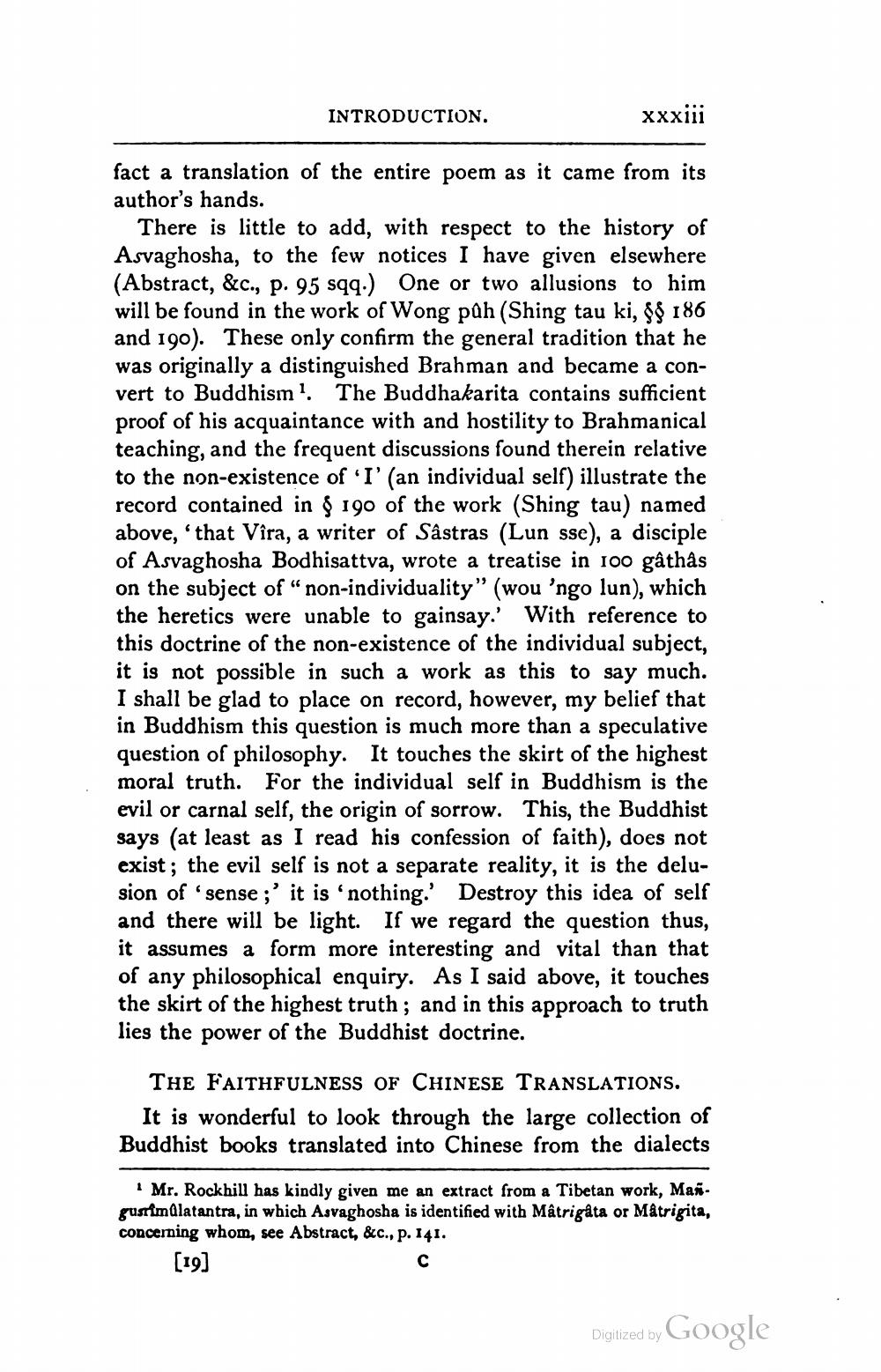________________
INTRODUCTION.
xxxiii
fact a translation of the entire poem as it came from its author's hands.
There is little to add, with respect to the history of Asvaghosha, to the few notices I have given elsewhere (Abstract, &c., p. 95 sqq.) One or two allusions to him will be found in the work of Wong pah (Shing tau ki, $$ 186 and 190). These only confirm the general tradition that he was originally a distinguished Brahman and became a convert to Buddhism. The Buddhakarita contains sufficient proof of his acquaintance with and hostility to Brahmanical teaching, and the frequent discussions found therein relative to the non-existence of 'I' (an individual self) illustrate the record contained in 190 of the work (Shing tau) named above, that Vîra, a writer of Sâstras (Lun sse), a disciple of Asvaghosha Bodhisattva, wrote a treatise in 100 gâthâs on the subject of “non-individuality” (wou 'ngo lun), which the heretics were unable to gainsay.' With reference to this doctrine of the non-existence of the individual subject, it is not possible in such a work as this to say much. I shall be glad to place on record, however, my belief that in Buddhism this question is much more than a speculative question of philosophy. It touches the skirt of the highest moral truth. For the individual self in Buddhism is the evil or carnal self, the origin of sorrow. This, the Buddhist says (at least as I read his confession of faith), does not exist; the evil self is not a separate reality, it is the delusion of 'sense ;' it is 'nothing.' Destroy this idea of self and there will be light. If we regard the question thus, it assumes a form more interesting and vital than that of any philosophical enquiry. As I said above, it touches the skirt of the highest truth; and in this approach to truth lies the power of the Buddhist doctrine.
THE FAITHFULNESS OF CHINESE TRANSLATIONS. It is wonderful to look through the large collection of Buddhist books translated into Chinese from the dialects
Mr. Rockhill has kindly given me an extract from a Tibetan work, Man. gustimdlatantra, in which Asvaghosha is identified with Mâtrigata or Matrigita, concerning whom, see Abstract, &c., p. 141.
[19]
Digiized by Google




